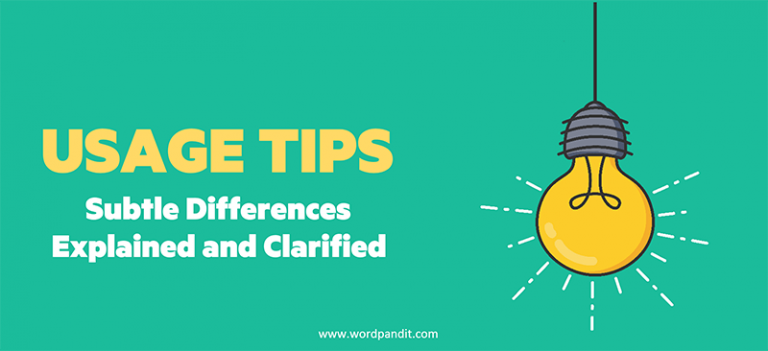Contemptible vs. Contemptuous: Understanding the Difference
Introduction
Imagine overhearing someone say, “That behavior is contemptible, and she was quite contemptuous about it.” 🤔 If you found yourself confused about what they meant, you’re not alone. “Contemptible” and “contemptuous” are two words that are often mixed up, but understanding the distinction between them can help you express yourself more accurately. Let’s dive into what makes these words different and why it matters. 💡 These words may seem similar, but they serve different purposes in our language, and distinguishing between them can help you communicate with clarity and precision. So, let’s explore these two intriguing words in greater detail, shedding light on their meanings, origins, and usage. ✨
Detailed Explanation of Each Word
Contemptible
Definition: Worthy of contempt or deserving of scorn. 😠
Pronunciation: kuhn-temp-tuh-buhl. 🔊
Etymology: Stemming from the Latin word “contemptibilis,” it carries the idea of something being so bad or unworthy that it earns disdain. The idea here is that the subject in question is so morally or ethically reprehensible that it naturally invites scorn from others. 📜
Usage Examples:
- ⚡ “The corrupt politician’s actions were truly contemptible.”
- ⚡ “Lying to friends is a contemptible act.”
- ⚡ “Cheating on an exam is a contemptible behavior that undermines the integrity of education.” 🎓✍️
Synonyms: Despicable, shameful, ignoble, vile, reprehensible. 🗒️
Antonyms: Admirable, respectable, honorable, praiseworthy, noble. 🌟
Contemptuous
Definition: Showing or expressing contempt, often in the form of disdain or scorn towards someone or something. 😒
Pronunciation: kuhn-temp-choo-uhs. 🔊
Etymology: From the Latin “contemptuosus,” meaning “full of contempt.” This word paints the picture of someone looking down on something or someone with scorn. It conveys an attitude that expresses strong disapproval or superiority, often with visible signs such as a sneer or dismissive gestures. 👎
Usage Examples:
- 👀 “She gave a contemptuous glance at the rude remark.”
- 👀 “The manager was contemptuous of those who refused to work overtime.”
- 👀 “He spoke in a contemptuous tone when addressing the unethical behavior of his colleague.”
Synonyms: Disdainful, scornful, derisive, condescending, dismissive. 🗒️
Antonyms: Respectful, appreciative, approving, admiring, deferential. 🙏
Comparison and Contrast
The key difference lies in what the words describe. Contemptible refers to something deserving of scorn or disdain, like an action or behavior that’s morally wrong. On the other hand, contemptuous describes a person’s attitude or feeling towards something they find despicable. Simply put, contemptible is the thing, while contemptuous is the feeling toward that thing. 🤷♂️
Imagine someone lying to manipulate a situation. 🤥 The lie itself is contemptible, deserving scorn. Meanwhile, your reaction—if you sneer or look down on the person—is contemptuous. 😠
Another example might be a scenario where a company engages in unethical practices. 🏢💰 The unethical practice is contemptible because it deserves public disdain. The public’s reaction—perhaps expressed through criticism or protests—is contemptuous because it reflects disdain for the company’s behavior. 📢😡
Contextual Usage
“His contemptible actions caused a lot of harm, and I couldn’t help but feel contemptuous whenever I thought about him.” 😤
“The contemptible behavior of spreading false rumors led to a very contemptuous response from the community.” 🗣️👎
Mnemonic Devices
To remember contemptible, think of “-ible” as “able” to deserve contempt, meaning it’s something worthy of scorn. It’s like saying it’s “able” to earn contempt, emphasizing that it is deserving of negative judgment. 🧠💡
Contemptuous ends with “-uous,” like “furious,” which can help you recall that it’s about having a strong feeling (in this case, contempt). The “-uous” ending often implies a quality or state, which in this case is the state of feeling contempt. 🤔🔥
Related Words
If you enjoyed exploring this word pair, consider learning more about similarly confusing words like respectable vs. respectful, irritable vs. irritating, or infer vs. imply. 📚 These word pairs, much like contemptible and contemptuous, require careful attention to detail to use correctly. 📝
Conclusion
Now you know the difference between contemptible and contemptuous! 🎉 One is something deserving of contempt, and the other is a feeling of scorn towards something. By mastering these words, you add precision to your communication, and the next time you encounter them, you’ll know exactly what they mean. 😊 Don’t forget, understanding subtle differences between words not only enhances your vocabulary but also improves your ability to convey nuanced emotions and judgments. Keep practicing, and soon these distinctions will become second nature! 💪📖
Contemptible vs Contemptuous: Confusing Words Quiz 📝🧠
1. The thief’s actions were so ___ that even his friends distanced themselves from him. 😳💔
2. She looked at him with a ___ glare after his rude behavior. 😠👀
3. Contemptuous means worthy of scorn. 🤔❓
4. Which of the following is a synonym for ‘Contemptuous’? 🤨🧐
5. He gave a ___ look when he saw the unethical behavior. 😒👎
6. Which word best describes someone who deserves scorn or disdain? 🤬😤
7. His ___ acts were met with a ___ reaction from the community. 🤬🤨
8. Which word has its origins in Latin meaning ‘full of contempt’? 📜🇮🇹
9. The word ‘contemptible’ can be used to describe a person showing disdain. ❌❓
10. The community leaders were ___ of his corrupt actions but maintained a ___ stance in public. 🤨🧐













